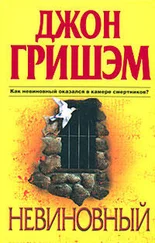Her phone buzzed. She smiled, said “Bonjour,” and handed it to Beatrice. Christine left them to their private moments and went to check on patients.
On Wednesday, November 11, Samuel finished the call with his mother with the usual mix of emotions, but couldn’t dwell on his family right then. It was an important day because the first game was that night, and though he wouldn’t play, he would wear the Eagles game uniform for the first time and yell from the bench. He returned to his room, woke up the deadhead Murray, and took off for the gym. He shot for an hour, went to all his classes — he hadn’t missed a single one now that he knew that someone was watching — and washed dirty football jerseys for an hour. The team had lost four straight and a bad season was finally coming to an end. At 5:30, he was in the basketball locker room playing video games and listening to rap as his teammates drifted in.
Four of the starting five had been set since before the first practice. Mitch Rocker was a senior point guard who had started the past two seasons and was captain of the team. Two more seniors, Dmitri Robbins and Roy Tice, started last year at forward and had not been challenged. A junior, Duffy Sunday, played 20 minutes a game the prior season and was much improved as the shooting guard. None of the three big men had dominated in practice, but Melvin Montgomery, another junior, had more experience and would get the start at center.
It was a veteran team and the players had high expectations. They certainly expected to rout their first opponent, a small private college from Charlotte that no one had ever heard of. It was one of those ridiculous preseason sleepers, anything but a real game, and few fans showed any interest. When the Eagles took the floor, The Nest was not even half filled, but that made no difference to Samuel Sooleymon. He smiled at his teammates in their handsome maroon-and-gray uniforms, just like the one he was wearing. Number 22, one of the few remaining numbers but Samuel didn’t care. He would have taken any jersey. He smiled at his coaches, the ball boys, the team managers, the referees. No one in the building was as happy as Sooley. He savored the pregame warm-up, but missed every shot from long range. He laughed on the bench, yelled at his teammates on the floor, and glanced occasionally at the student section. No benchwarmer ever enjoyed a game more.
There were thirteen players in uniform, including Sooley and one of the walk-ons. The other had not made the cut. The two transfers were not allowed to dress out but sat at the far end of the bench and were expected to make noise. Of the thirteen, everyone saw action but him. Even the walk-on, Rontae Hammer, played five minutes and hit a three. In the second half, the Eagles played down to their opponent’s level and the game turned sloppy. Afterward, Coach Britt yelled in the locker room and seemed unhappy, but a 30-point win against a bunch of short, slow white boys was what it was.
Four nights later, while the football team was on the road, the Eagles hosted another mystery school that started five players who would have struggled against Central’s women’s team. In an embarrassing blowout, nine players scored in double figures, a team record. Murray hit three bombs and had 12 points. He was firmly entrenched as the number two point guard behind Mitch Rocker, and it looked as though he would see limited playing time. In Samuel’s muted opinion, his roommate was simply not quick enough. After three months on the practice court, Samuel could easily dominate Murray in one-on-one drills.
After two pushovers, it was time for the NC Central Eagles to go from bully to patsy, though that was certainly not their plan. They rode the bus ninety minutes to Winston-Salem and took the floor against Wake Forest in Joel Coliseum in front of 9,000 rowdy fans. For Samuel, it was a breathtaking moment to trot out for warm-ups in front of a packed house. Though he would not get near the court after the whistle, his stomach was flipping nonetheless. Evidently, the entire team had the nerves and nothing fell for the first five minutes. Down 14–0, Lonnie called time-out and asked his starters if any of them had plans to score that night. They wanted to and tried mightily, but their rim had shrunk. Wake was up by 20 at half-time, and Samuel, unsmiling, rather enjoyed Lonnie’s half-time histrionics.
They were not effective. After clawing to within 15 early in the second half, Central withered under the pressure of a full-court press and fell to pieces. Lonnie yanked his starters but the second team was even more confused. With the offense out of sync, the defense lost focus and Wake got red hot. The 30-point loss made for a long bus ride back to Durham.
On Saturday, November 21, the Eagles flew on a charter to Knoxville for another game they would have preferred to avoid. Playing in front of 20,000 fans, none of whom were rooting for them, the Eagles fought respectably but still lost by 20. Afterward, back in the dorm, Murray would explain that the big schools need a few easy wins early in the season and were happy to pay a weaker program up to $100,000 to drive over for a butt-whipping.
“So Tennessee paid us to come into their place and get slaughtered?”
“Sure. They’re called ‘guarantee’ games. They’re guaranteed a win and we’re guaranteed a check. Everybody does it. Just part of a typical season. Plus they cover our travel expenses.”
“What do we pay our victims?” Sooley asked.
“A lot less. I’ve heard ten thousand. Plus they buy their own bus tickets.”
“Only in America.” At least once a day Sooley was stopped cold and shook his head in amazement at the excesses of American culture, especially college athletics. He still had trouble grasping the idea that his full scholarship, valued at about $22,000 a year, was free, and that Central was paying him $7.25 an hour to fold towels and clean up after the football team.
On November 24, the last day of classes before the Thanksgiving break, Central hosted Campbell in another sleeper. With only a few hundred fans watching — the students had already fled — the Eagles proved that twenty-year-olds can easily lose focus. They were going home tomorrow, for four days of Mom’s cooking and no practice and no classes to worry about, and they didn’t bring their game. But Campbell did. According to the Vegas odds, another American oddity that Murray was still trying to explain to his roommate, Central was going to win by a dozen points. Instead, the Eagles lost by 10, at home, and Coach Britt was furious. He told his players to get out of his sight — he didn’t want to see them until Sunday afternoon, at which time they had better show up ready for a grueling practice.
For the past fifteen years, Christine Moran had tended to the dire medical needs of the poorest people on the planet. She was from the lovely town of Besançon in eastern France, near the Swiss border, but had not been back there in a decade. She had studied nursing in Paris and wanted to see the world. Médecins Sans Frontières, Doctors Without Borders, signed her up and sent her to Bangladesh for two years. From there she went to Tanzania and spent three years caring for people from Burundi who were fleeing genocide. After five years with refugees, she returned to France and worked in a hospital in Lille, but quit after four months when she realized her patients were hardly ill compared to those in the developing world. She returned to Africa and was assigned to the Kakuma Refugee Camp in Kenya, home to 200,000 displaced souls, most from Sudan and Somalia, though they came from twenty other countries as well. Many of them were children with no parents, and it was those faces that haunted her when she tried to live in France. The sad hopeless faces of malnourished children, some dying, others hanging on and slowly improving. She had held hundreds of them as they drifted away forever.
Читать дальше












